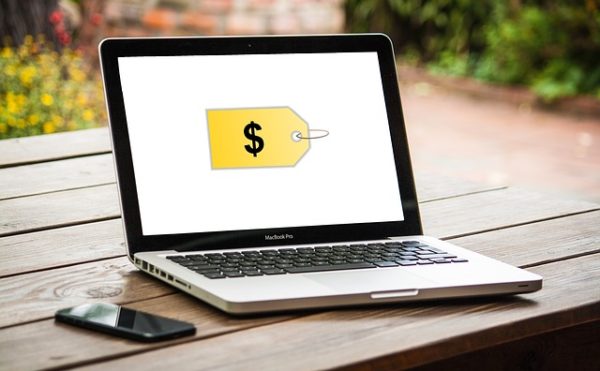Shopping online has never been easier. A quick Google search of almost anything brings hundreds of results. Placing an order takes five minutes and if you use Amazon’s Alexa, you don’t even need to touch your computer. A simple voice command and Alexa places the order for you.
But beneath the convenience of online shopping is a multitude of horror stories where people get conned. The worst cases happen when a shopper’s credit card details are exposed to an unauthorized attacker. On the bright side, you can shop safely online by using a few tips to safeguard your credit card data.
Always use Familiar Websites
There are numerous famous and safe websites one can use to shop for household items. Before you visit overseas-based websites, first check prices on the familiar sites. Amazon sells everything you would want at great deals, so you have no excuse not to check them out.
If you are a Walmart fan, you could order most items on their physical stores online. eBay is also a great alternative to Amazon. It sells products manufactured all around the world and allows you to bargain prices on certain items.
For handcrafted items, etsy.com is the most recommended shopping site. Everything that can be hand-made can be sold at Etsy. That also means you could become a seller on the site. Overstock.com is great for electronics.
Avoid Public WiFi
Public WiFi comes free, which is tempting if you love staying connected on social media and other platforms. When it comes to shopping, however, always avoid WiFi networks from unknown sources. At home, you probably have encrypted WiFi and strong passwords that keep off any wannabe hackers.
At a coffee shop, anyone with the right tools can see what you are doing online. If shopping, they could access your passwords and credit card information. If you have to use public WiFi, use it to find general information on Google or to read blog posts.
To help mitigate the issue above, consider using a VPN. A good VPN hides your IP address from everyone else around you. In fact, you receive a new, temporary IP address. Your data is also encrypted to keep away hackers. Learn more about VPNs at https://www.bestreviews.guide and get one to secure your device.
Always check for the Lock (HTTPS)
Most browsers these days warn you when you visit a potentially unsafe website. But if you don’t receive any warning, always check for HTTPS encryption. Marked using a green padlock on a website’s domain name, HTTPS encryption helps secure to better secure your data.
HTTPS encryption is a standard security protocol in most websites nowadays. Never shop on a site without it. Of course, a website being secure doesn’t totally keep you safe. Having strong passwords is also important. Anyone who gets hold of your weak passwords could access your credit card information.
Don’t Overshare your Data
Shopping sites don’t need your birthday and social security number to do business with you. Some don’t even require your home address and you certainly don’t have to link up your social media accounts with them. Giving out all your personal data to online sites makes you vulnerable.
Online crooks succeed by accessing as much personal data about their victims as possible. Limit the amount of information you put out there and you’ll be harder to get for attackers. Keep in mind that even the biggest sites can be breached.
Watch out for Phishing Scams
The easiest way attackers get hold of people’s financial data is by tricking them into giving out the information unknowingly. They could send an email claiming you have a free shopping gift on Amazon. When you click on the link given, you are redirected to an unsafe website.
Phishing scams happen in multiple ways besides emails. Facebook messenger has often been exploited to defraud unsuspecting users. Skype and other voice communication channels aren’t left out. So, the moment you receive a suspicious message from unknown sources, always delete them.
Keep up to date with Security Trends
What works today to protect your devices may not work one year from now. As such, always stay up to date with security trends to learn new ways to secure yourself. Again, update your computer and mobile software as often as possible.
Attackers love old software because they are easy to breach. Windows 10, for example, is faster and safer than previous Windows versions. Newer android OS versions are better secured than older operating systems.
Never give attackers any space to breach your computer system. If you don’t have an antivirus program, you are at risk of getting compromised. Good antimalware programs prevent phishing scams, intruders and ransomware of all kinds.
Consider using a Virtual Credit Card Number
Like the temporary IP addresses VPNs give you to hide your real IP address, banks also issue temporary credit card numbers. They are unique to each transaction and disposable with no security threat to your real credit card number.
Virtual credit card numbers come in a variety of forms. Some are retailer-specific, meaning you can only use them at specific stores. Others are single-use types which can help you shop safely on sites you’ve never used before. You can also place a spending limit on a virtual credit card number. All these measures ensure in case you are ever compromised, little damage can be done.
To Conclude
Shopping with a credit card is always better than using a debit card. With the latter, any compromise can lead to access to funds in your bank account. With a credit card, crooks can only use money in your credit account which is normally better insured. Still, it’s better to stay safe and reduce the risk of having your personal financial data compromised.
Start by securing your computers by using antivirus programs. Use strong and unique passwords on your shopping site accounts and stick to verified e-commerce stores. If you have to use public WiFi, secure your connections with a VPN.

